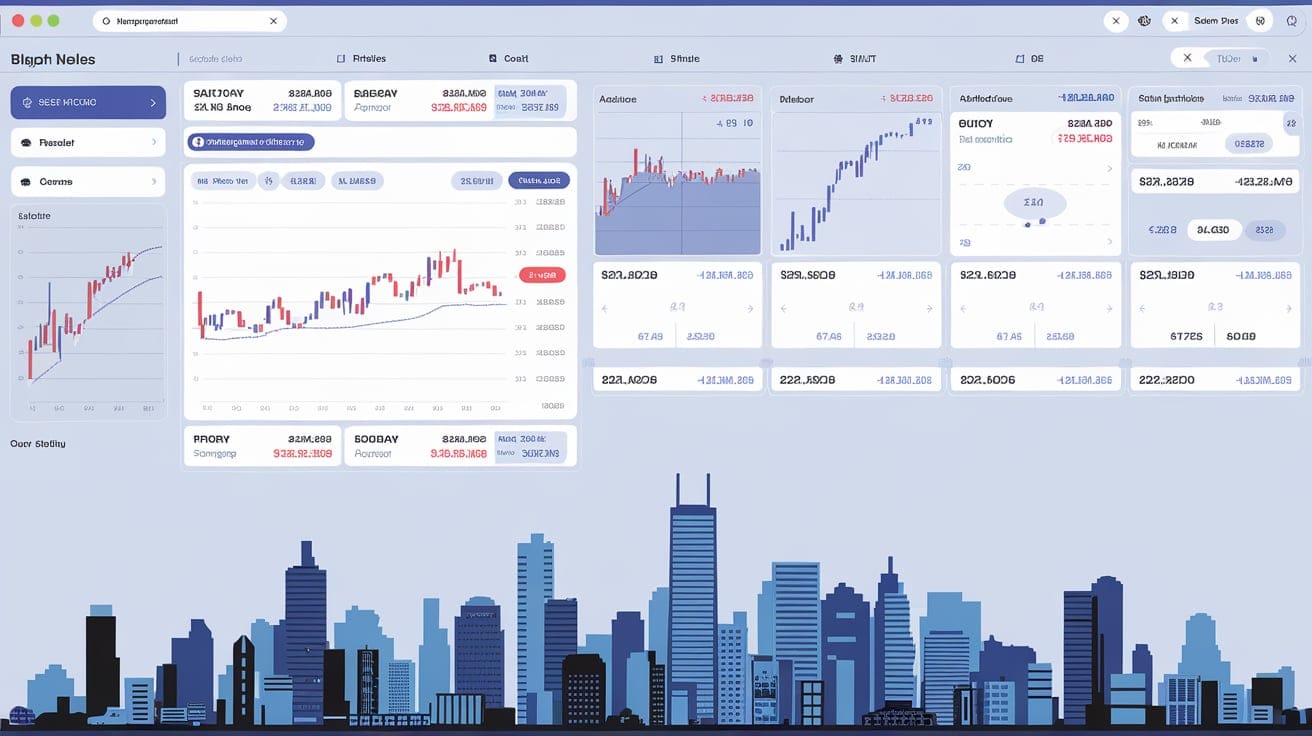

Are you ready to disrupt with AI? Join our Hackathon today! Click to Register
By WebOsmotic Team | Published on December 10, 2024
Summarize Article

Table of Contents
ToggleIt was human intuition coupled with traditional analysis that dominated stock markets, but with the advent of artificial intelligence (AI), the scenario is changing drastically. Automating trades, predicting market trends, and reshaping what investors have come to know about the market, AI has become an indispensable part of stock trading. But how does it do that? And what future does it portend for trading? Enter into the revolution that is artificial intelligence in share market and its influence on traders, investors, and financial institutions alike. Let’s discover how to use AI in stock market trading.
AI has heralded such changes in the finance sector as it has brought to bear dependence on stock trading and investment in India and overseas–with machine learning algorithms and predictive analytics engineered to drive smarter investment decisions.
AI has enabled a giant leap that can process data-heavy and data-important models within a small amount of time and glean patterns beyond what humans can notice. AI systems yield actionable insights that enable better-driven decision-making by analyzing historical data, the current state of markets, and even social media trends.
Here is a summary of the purposes of AI applications in stock trading with major components:
AI systems amass different information inputs, which include stock prices, volumes traded, econometric indicators, and even news reports. Advanced algorithmic processes then model these data pieces, curating trends and possible anomalies therein.
One of the most practical applications of AI in stock market forecasting has to do precisely with price movement prediction. The AI systems are trained using past data and live updates, and they are capable of predicting with much accuracy when fluctuations will occur in the market.
AI stock trading software: These systems are commonly referred to as AI-powered trading systems because they open and close trades according to set parameters. These systems analyze the market condition and place the buy or sell order at the best possible time, often in milliseconds.
AI in stock market prediction about trading strategies will economically be profitable and sustainable. It appraises the market volatility and possible downturns so that the investors can evaluate their risks.
India is keener on adopting AI-based stock trading solutions, therefore defining a hub center of budding innovation in fintech. AI is expected to offer the advantages of:
With the expansion of digital penetration and increasing interest in AI, investing would be more open to smarter, data-driven practices for Indians.
Every time the question “Can AI predict stock market trends?” arises, it ends in a debate. Although AI cannot determine the future with absolute certainty, it can learn a lot from the data and will be able to analyze the patterns for its informed predictions.
The AI models tend to employ the following techniques:
No matter how accurate predictions AI might not have of its own, these are great additions to the reasonable accuracy of the forecasts about the market and thus give the edge to investors.
AI makes trades in milliseconds as against human traders, and this speed would be necessary during volatility in the market wherein timing is of the essence.
When processing such a huge amount of data, it builds psychological immunity from facts, hence trading will be purely on facts.
For instance, AI works around the clock monitoring global markets, and reacts instantly when there is a change.
AI tools create unique investment strategies consistent with personal goals, risk tolerance, and market conditions.
Automating trading processes helps reduce operational costs as they usually do not need a huge team of human operators.
AI stock trading software is empowering traders to maximize AI. Here are a few leading examples, including:
| Software | Features | Target Audience |
|---|---|---|
| Kavout | Uses AI predictive analytics to score stocks. | Institutional and retail investors |
| Trade Ideas | Offers AI-powered, real-time market scanning to identify trading opportunities. | Institutional and retail investors |
| Numerai | Utilizes AI and crowd-sourced data for stock predictions. | Institutional and retail investors |
| Streak by Zerodha | Allows retail traders to create algorithmic strategies without coding. Popular in India. | Retail traders |
AI trading tools are addressing the needs of both institutional and retail investors, making advanced trading solutions accessible to the masses.
If you are wondering how to use AI for stock market trading, here’s a procedure that will guide you:
Yet there are challenges that artificial intelligence faces concerning its benefits in share market trading:
The introduction of AI into stock trading is just the beginning of a transformative journey. As technology continues to advance, we can anticipate significant developments.
Machine learning models are expected to evolve, enabling more accurate predictions and insights. Affordable AI tools will make advanced trading solutions accessible to retail traders, democratizing the field.
Additionally, the integration of AI with blockchain technology could revolutionize trading by enhancing transparency and security. These emerging trends are set to solidify AI’s role as a cornerstone of modern stock trading.
AI in stock trading is rewriting the rules of the game thereby demonstrating answers toward how investment becomes smarter, faster, and more informed. Whether in AI-based stock trading in India or globally, artificial intelligence is changing how traders approach the markets. It is a completely new world of automated trading and accurate market forecasts that empower investors with tools beyond imagination. Indeed, the future of trading belongs to artificial intelligence in share market innovations.
Unlock exclusive insights and expert knowledge delivered straight to your inbox